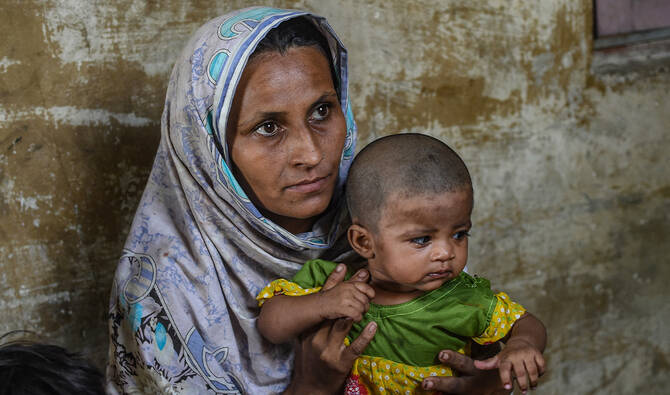ISLAMABAD: Prime Minister Shehbaz Sharif on Monday stressed the importance of making progress in maternal and child health, acknowledging that Pakistan still has a “long way to go” in the field as the international community marks World Health Day today.
Pakistan faces significant challenges in maternal and newborn health due to resource constraints and cultural barriers. The country has a maternal mortality ratio (MMR) of approximately 154.2 deaths per 100,000 live births, and a neonatal mortality rate of approximately 38.8 deaths per 1,000 live births, according to the global online platform Healthy Newborn Network (HNN).
The international community marks World Health Day every year on Apr. 7. This year’s theme has been chosen as “healthy beginnings, hopeful futures,” to stress the importance of maternal and child health care. As per the UN, this year’s campaign will urge governments and the health community to ramp up efforts to end preventable maternal and newborn deaths, and to prioritize women’s longer-term health and well-being.
“Pakistan has made remarkable progress in the field of maternal and child health, but we still have a long way to go,” Sharif was quoted as saying by his office. “We must strengthen our health systems in a way that they can effectively address not only medical but also the broader social factors that impact maternal and newborn health.”
The Pakistani premier said his government is committed to harnessing cutting-edge technology in the health sector and building strong partnerships to further improve public health services.
He said that through the use of digital health tools, data-driven policymaking and effective community engagement, Pakistan aims to bridge the gaps that hinder health service delivery, especially in underserved and remote areas.
“As we celebrate World Health Day 2025, let us reaffirm the need for an integrated and multidisciplinary approach to health,” Sharif said. “This should include integrated and practical actions in health care, education, nutrition, environment, and governance.”
The premier said his government must prioritize preventive health care, universal health coverage, improving mental health and eliminating health inequalities.
“Our goal should be to ensure that everyone has access to quality health facilities, trained health workers, safe treatments, and essential medicines in a timely and affordable manner — whenever and wherever they are needed,” he added.
Apart from maternal and child health, Pakistan also faces significant health challenges in various fields. According to the World Bank, Over 40 percent of Pakistan’s under-five children are stunted, as compared to the South Asian average of 31 percent.
Polio is another challenge that Pakistan is grappling with, making the country one of only two where the disease is endemic. After reporting an alarming 74 cases in 2024, the country has so far reported six cases of the disease.


















